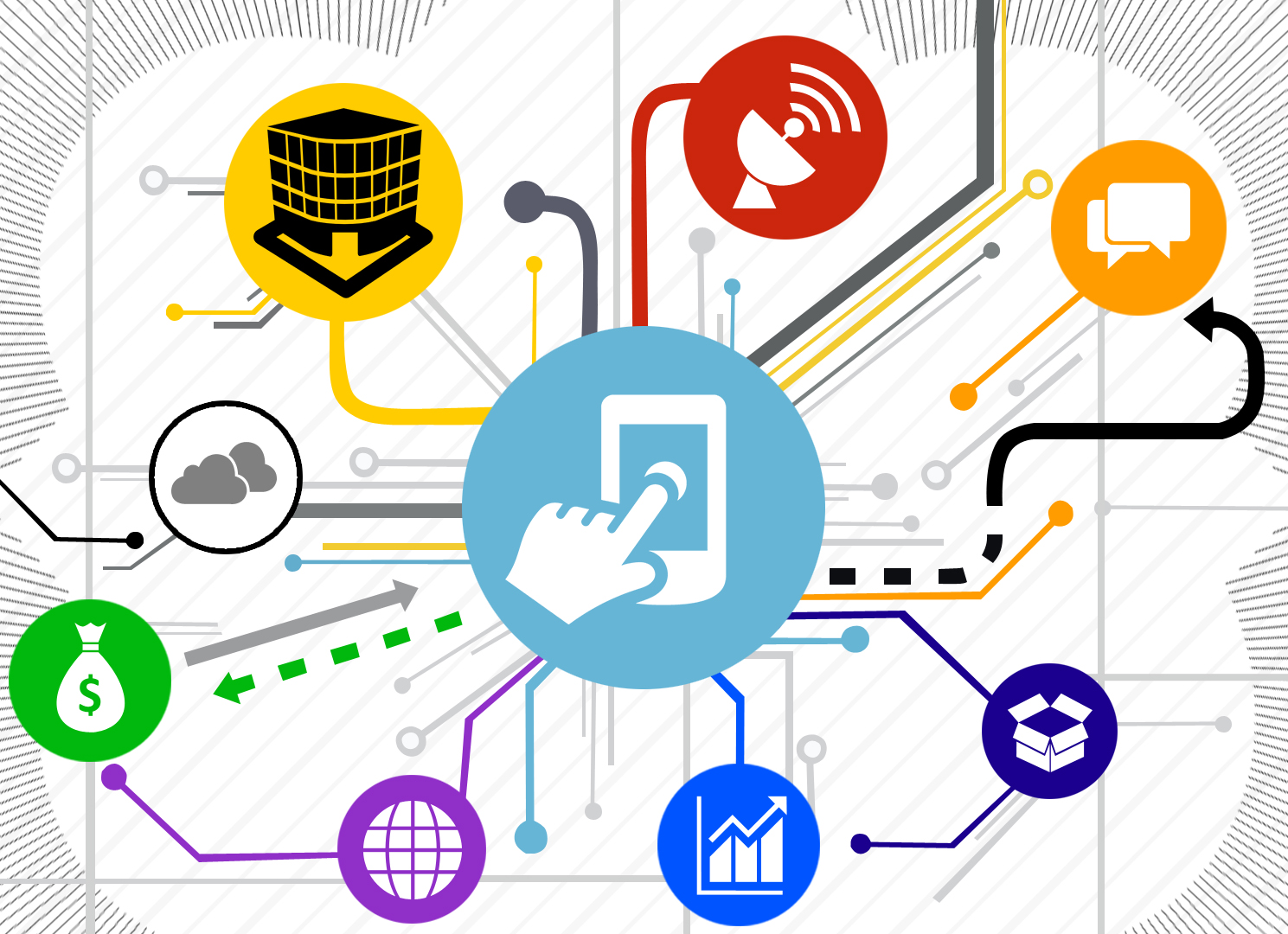The growth and adoption of digital technologies has undoubtedly led organizations on a pathway to success, with enhanced customer service and increased productivity being areas where these technologies have had the biggest impact. The four “megatrends” – cloud, big data, mobile and social technologies are clearly having a positive impact, industry watchers who believe that only a few early adopters have been able to transform their organizations with these technologies are mistaken. Digital transformation is occurring rapidly at a majority of public and private sector organizations.
A new study by George Westerman, Didier Bonnet, and Andrew McAfee found that firms with a strong vision and mature processes for digital transformation were more profitable on average, had higher revenues, and achieved a bigger market valuation than competitors without a strong vision
Mobility Enables New Business Scenarios:
Mobility is not just about mobilizing existing business – it is an opportunity for organizations to reinvent their product, process, and business model. According to the Harvard Business Review survey, mobile initiatives are the most frequently adopted of the four megatrends. They have already transformed business operations and changed the ways employees work. Majority of survey respondents indicate that putting mobile functionality in the hands of employees is now a key requirement, and leading companies are also leveraging the growing ubiquity of smartphones to innovate and drive top-line revenue growth.
Mobile connects employees to their work and each other
Benefits of using mobile devices and applications
64%Anywhere access to corporate apps and data 53%
Increased employee productivity 34%
Increased employee collaboration
RNF Technologies has helped many organizations including Dow Chemicals reinvent their product process and business model. RNF built an EH&S mobile app for Dow Chemical’s Texas operations. An enterprise mobile application, the app’s primary objective was to digitize all safety protocols, track employees and mitigate safety hazards through its push notification warning system. Read more about the project here.
Below are business scenarios where mobility has transformed business processes, enhancing clients’ operational efficiency and agility.
- 1. Better Customer Experience: The rise of mobility has seen a significant impact on customer experience. 73 per cent of consumers feel retailers which offer in store mobile technology provide superior customer service, with a further 64 percent more likely to shop at a retailer which provided instore mobile technology. Mobile apps connect the business with consumers and provide them with instant information regarding their problem. They can also help predict more precise ETAs, which provides a more accurate wait time for the customer and exact expense report for companies. Apps are now more than ever personalising user experience, increasing immediate access to information for users. When considering shopper expectations it is clear that mobility has made a strong impact on customer experience and will be at its heart going forward.
- 2. Greater Operational Efficiency: The use of mobile technology as a means to improve operational efficiency has become increasingly prevalent in the manufacturing industry. More and more companies have realized the benefits that can be gained from investments in various mobile devices and complementary business software. The email-based smartphone devices allow you to essentially respond to email wherever you are, but now these tablet devices extend to a totally new level. You are able to look more and dive deep into the information you’re getting and then make more informed decisions. Inventory management, warehouse management, quality, and production decision-making are other areas of interest.
- 3. Enhanced Customer Loyalty: Incorporating enterprise mobility into a retailer’s business strategy can help keep a customer engaged and loyal to your company brand. As a retailer, you know quick responses to customer inquiries is one of the many goals you have for your store. To achieve a high level of satisfaction and support, employees must have real-time access to information. Mobility is a key to the future success of loyalty programs. Those companies that do not become early adopters of this technology will be left to ponder why they have been left behind.
- 4. Augmented Revenue Generation: In today’s digital world, Enterprise Mobility is creating new revenue channels, improving field staff efficiency, and leveraging new modes of user engagement to increase market penetration and customer loyalty. Shorter sales cycles and reduced cost of customer acquisition are significantly boosting cost savings and revenue generation while enhancing productivity and efficiency, resource utilization, and streamlining business processes with lower operational costs.
The most important trends, the most interesting things, are happening at the intersections of different technologies,” asserts Babson College’s Davenport. Organizations are being transformed to be significantly greater among those that deem multiple technologies to be critical. As an emerging technology in the realm of digital revolution, mobility offers significant promise to drive innovation and transform business. Whether it is to energize existing product, enable better customer service, tap into new profit sources or boost workforce productivity, a well-devised mobility strategy can not only help organizations expand to new markets but also keep costs in check

